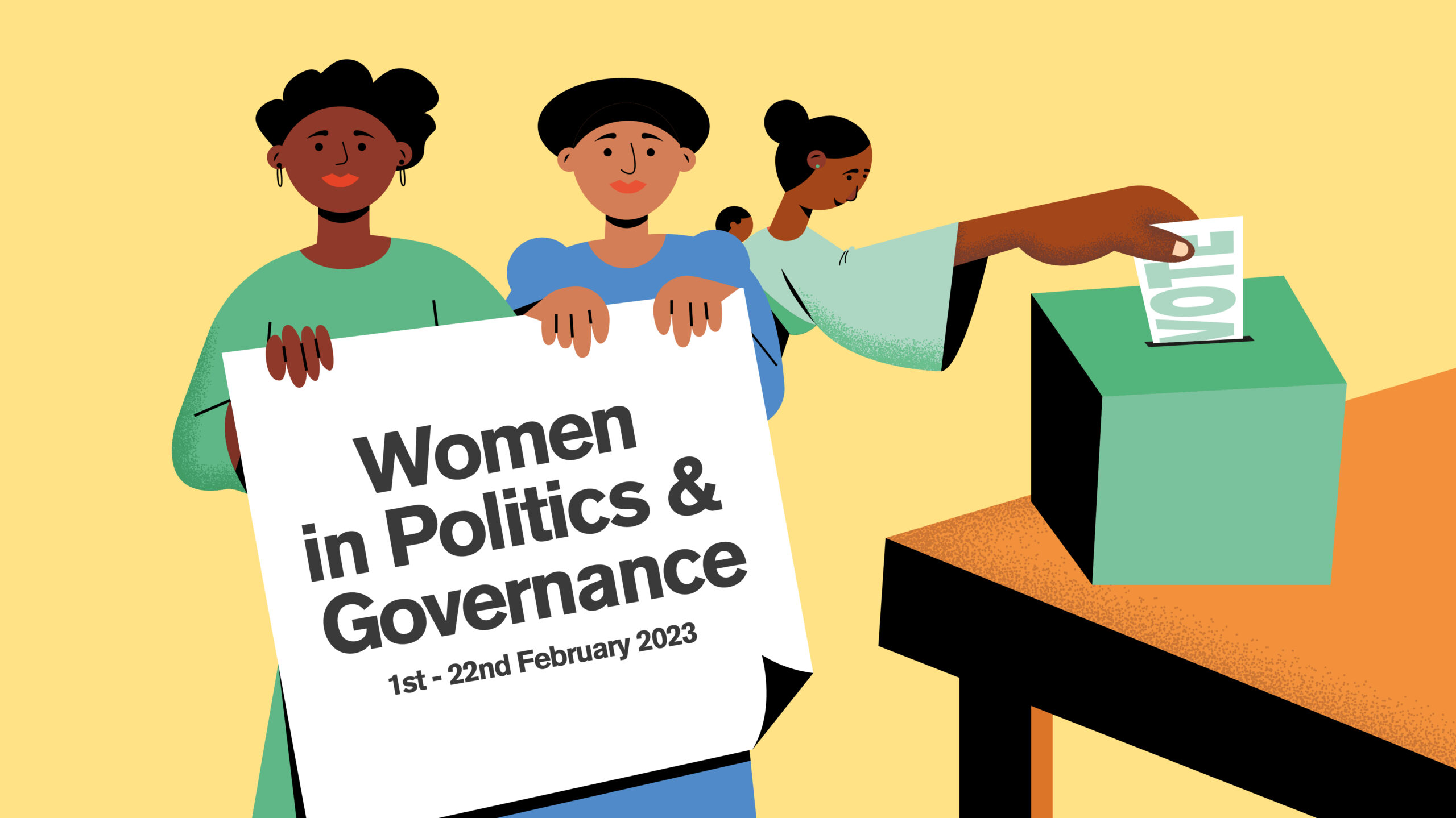Features
Fostering Gender Equality in Politics and Governance

As of December 2022, Nigeria’s female population was approximately 108,740,708, representing 50% of its entire populace. But the percentage of women’s participation in politics stands in sharp contrast to these numbers.
The current statistics of women in politics are dire: 8 (7.34%) of 109 senators are women; 13 (3.61%) of 360 are in the House of Representatives; of the 991 people in the State House of Assembly, 44 are women. Generally, women’s participation in politics stands at 6%.
As the 2023 elections draw near, it has become imperative to take stock of women’s political position in Nigeria and the steps we can take to ensure improvement in women’s active participation in politics and governance.
Women’s Participation in Politics & Governance
We cannot talk about women in politics and governance without acknowledging the efforts Nigerian women have put into fostering the socio-economic development in the country. For instance, there are over 41 million Small and Medium Enterprises (SMEs) in Nigeria and 41% of them are owned by women, with 23 million female entrepreneurs operating within this segment. As of 2021, Nigeria had the highest number of women entrepreneurs in the world, according to Global Entrepreneurship Monitor.
These statistics show one thing: Nigerian women contribute immensely to the country’s economy and development. Beyond the socio-economic, we have also seen women in political positions and in governance succeed locally and globally. Women like Dora Akinyuli, Ngozi Okonjo-Iweala were/are known for their outstanding leadership and palpable passion for excellence. We have seen women at the helm of affairs in public offices and thrive, yet, women are underrepresented in politics and participation remains low.
How then do we foster women’s active participation in politics and governance? How do we build a political space where women can thrive?
Let’s learn from Rwanda, South Africa and Namibia
Globally, Rwanda has the strongest female participation in politics. As of May 2022, over 60% of the seats in Rwanda’s national parliament were held by women. In Africa, this is closely followed by South Africa, where 46.5% of parliamentary seats are occupied by women. Namibia (and countries like Senegal, Mozambique, and Ethiopia) have also recorded a level of women participation above 40%. There’s something these three countries have in common: electoral quotas for women.
Electoral gender quotas are considered to be a necessary and effective tool for fast-tracking women’s representation in parliaments. It is simply recognising the need for gender parity, and creating avenues for women’s political participation. It is a way of saying “There’s a gender gap and women are under-represented in politics, so we’re taking intentional steps to ensure that we have more women active in politics and governance.” Electoral quotas make it entirely normal for women to take up political roles and create a safe space for women to contest and be voted for.
Similar to the Electoral Gender Quota is the rejected Reserved Seat Bill – a temporary measure of allocating or reserving a minimum number of seats or positions to historically underrepresented groups, such as women, youth, and persons living with disabilities, in order to promote equal and inclusive political participation.
In Nigeria, we must strive to balance representation through constitutional reforms such as revisiting rejected gender bills.
The Immense Benefits of Having Women in Politics
The electoral gender quota is great to have when increasing women’s participation in politics and governance. But it goes way beyond that. Beyond the goal, it is central to building and sustaining a properly functioning democracy. First and foremost, a balanced gender representation in politics is a matter of equity and human rights – both of which are cornerstones of a democratic society.
Equal representation in politics and governance has a huge impact on how policies are shaped, and greater responsiveness to citizen needs. It also fosters gender equality in the country – a driving force for increasing economic growth, reducing poverty and enhancing societal well-being.
The way forward
As we progress, politically, in Nigeria, we can see more active involvement in women’s participation. People are becoming more politically aware and are hungry for development. More than ever before, people are realising that women’s equal participation in leadership are essential to achieving a developed country.
The odds are currently favourable; over 44 million (47.5%) women in Nigeria have completed their PVC registration and INEC has extended the collection of PVC to the 5th of February. This means that people who have not gotten their PVCs now have the opportunity to do so. The number of women with their PVCs also shows that women wield the power to chart a new cause in these coming elections.
The first step to participate in politics and governance, as a woman, is to be involved in the electoral process. Did you register for your PVC? Have you gone to collect it? Would you cast your vote during the elections? Are you keeping abreast of political news in your community and country? Are you aware of recent policies affecting your country and people?
As a society, it is also imperative to let go of gender biases in electing political leaders. “Nigeria is not ready for women politicians” is akin to saying “Nigeria is not ready for development.” There is only one thing gender biases in politics and governance would achieve: stunting the growth and development of the country.
Women in Politics & Governance
The elections are coming and you have a voice; it is time to use it. We have explored the immense benefits of having women in positions of power and the way forward, but there’s one more essential factor: sensitisation.
From the 1st of February to the 22nd, the BellaNaija x UN Women Women in Politics and Governance campaign will explore and foster women’s active participation in politics and governance.
Your vote and voice are your first ticket to political seats. Use them.





















